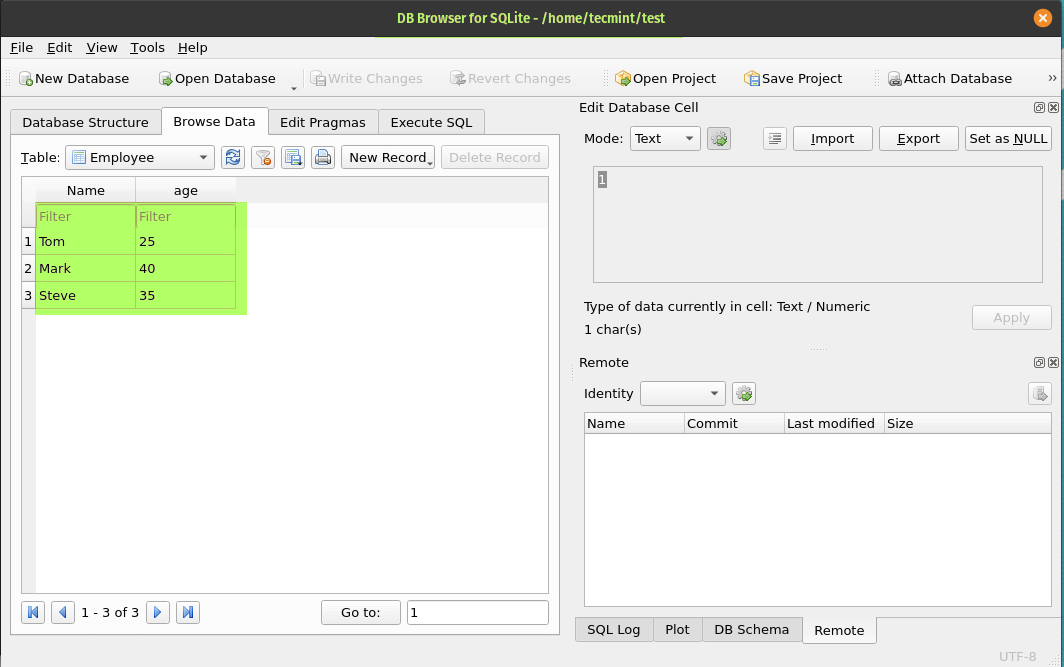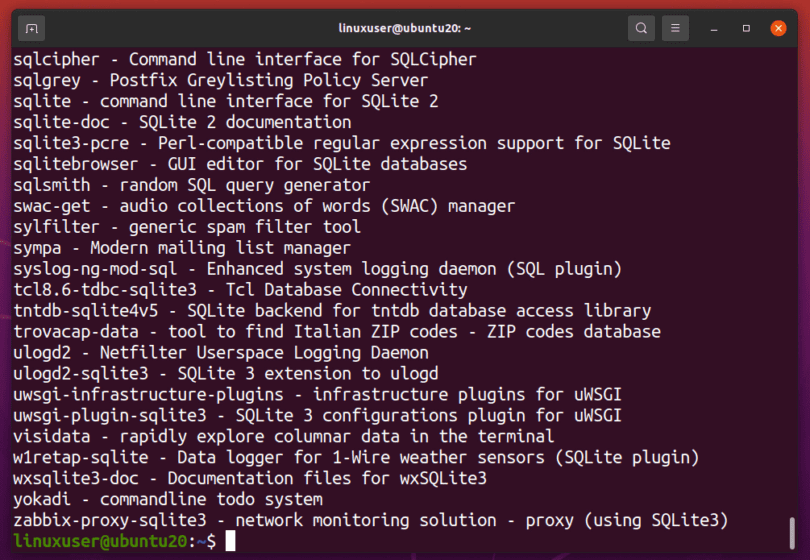

Once you are connected to the session you can run the. Here I don’t have any database so I will create a new DB by mentioning the DB name as an argument. If we are not passing the database name as an argument then a temporary in-memory database is created which will be deleted once the session is terminated. If the database is available it will open the database if not it creates a new database. You can create a database when launching the sqlite session by mentioning the database name as an argument. The database is simply stored as a file in your local file system.

You can see from the above image SQLite3 is successfully installed and running with version 3.33.0. You can validate the installation by starting the sqlite session by running the following command.
SQLITE BROWSER UBUNTU INSTALL
To install the package run the following command. Now check if there are any SQLite packages available in the apt repository by running the following command. First, update apt-cache by running the following command. Setting up SQLite is simple compared to other popular databases like MySql, Postgresql, etc. Every smartphone in the world has hundreds of SQLite database files and there are over one trillion databases in active use. There are lot more areas where SQLite is used.

works in the client-server model and they have a dedicated process running and controlling all the aspects of database operation.īut SQLite has no process running and has no client-server model. Popular databases like MySql, PostgreSQL, etc. SQLite is a lightweight, small and self-contained RDBMS in a C library.


 0 kommentar(er)
0 kommentar(er)
